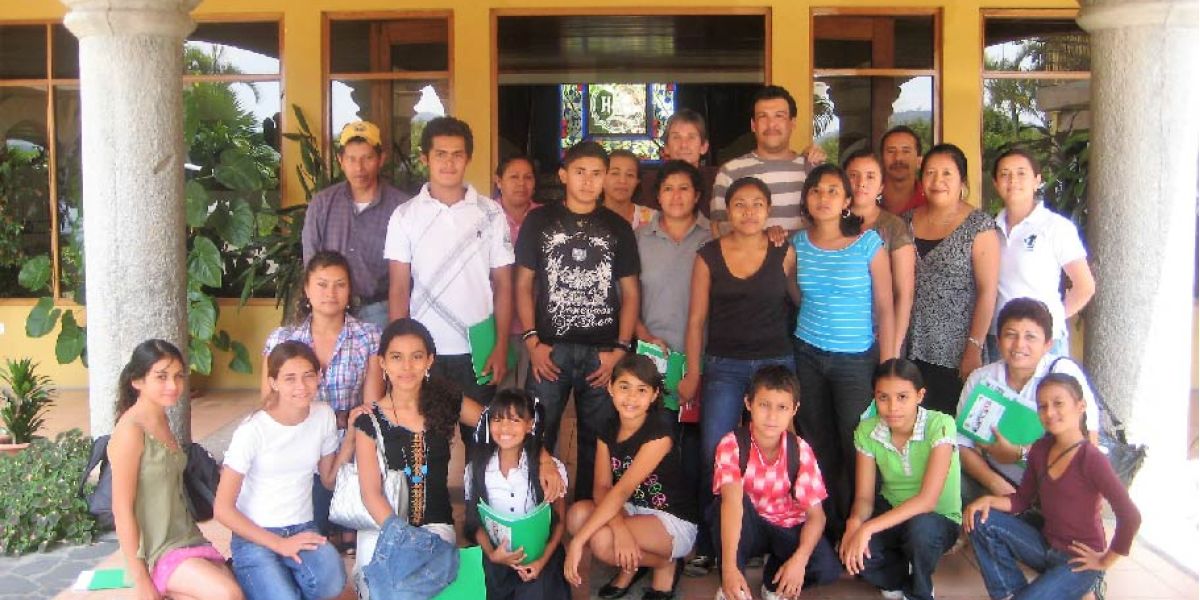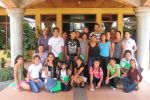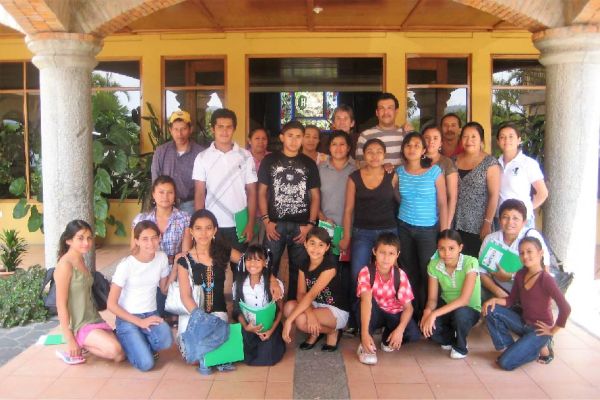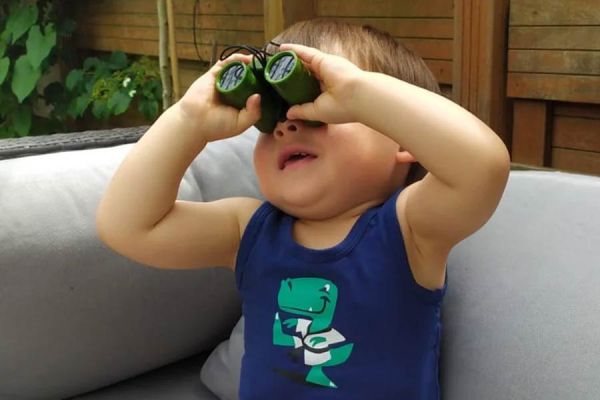Please note that this blog post was published previously on the “Ethical Research Involving Children” (ERIC) website. The content of the blog and the argument that excluding children’s participation in research is unethical, aligns closely with our ethical principles when doing children’s rights research. We are grateful to the ERIC team and the author, Harry Shier, for allowing us to repost this blog and we highly recommend having a look at the ERIC website which includes many more blogs and sources for children’s rights researchers. However, we would like to emphasise that this blog post is a personal reflection by the author. It does not reflect the views of the ERIC team, or of any research team or institution the author is or has been a part of.
Despite recent progress in broadening our understanding of ethics in research with children (much of it thanks to ERIC’s pioneering work in this area), the ethical approval procedures and practices in many higher education institutions continue to have the effect of silencing children’s voices. How have we arrived at a place where blocking children’s voices is seen by some as an ethical imperative?
The idea for this post came from a recent experience where a participatory research project I was involved in was disrupted, delayed and almost scuppered by the unavailability of young people to take part. We, the research team, believe this was not due to young people’s lack of interest in participating. Rather, we attribute it largely to the attitudes and actions of various adults in public service roles acting as intermediaries who, instead of facilitating connection as promised, created barriers between the researchers and the young people we wanted to hear.
We refer to these adult intermediaries as “gatekeepers”; a concept introduced to sociology by Kurt Lewin in 1947, and, for our purposes, defined by Burgess in 1984 as: “those individuals or organisations who have the power to grant or withhold access to people or situations for the purpose of research” (p. 39). In the case of our research, such gatekeeping led to the original research plan being abandoned, and the project re-launched in a new location, involving a huge waste of time and resources.
In reflecting critically on what had happened, we didn’t focus on the ethical aspects. The project had full ethical approval, and it was never hinted that anything the team had done, or not done, was ethically problematic. Instead, we focused on problems related to the methodology: Did we use the optimum methodology to build the necessary relationships with potential young participants in the face of obstructive gatekeeping? If not, what could/should we have done?
While this methodological aspect is the subject of a forthcoming paper, here we interrogate the incident through an ethics lens. In doing so, it soon became evident the gatekeeping situation signalled a rights violation. Specifically, we viewed it is a violation of the fundamental right guaranteed by Article 12 of the UN Convention on the Rights of the Child: The right of the child “who is capable of forming his or her own views … to express those views freely in all matters affecting the child”. It seemed to us, that when a legitimate researcher (with full ethical approval) affords a child the opportunity to express their views through the medium of voluntary and informed participation in a research process, and a third party, acting as gatekeeper, steps in to prevent the child availing of this offer, there is a clear violation of the child’s Article 12 right to express their views freely (emphasis added).
This is a specific example of a broad, pervasive and insidious category of children’s rights violations; the silencing of children’s voices by adults. However, as far as I can see, the silencing of children’s voices is rarely viewed as an unethical practice. Nor have I have come across any case where silencing children was seen as an ethical problem, or where an ethics committee insisted on measures to ensure children were heard. This is especially perplexing given the advances referred to above that have considerably shifted the case for not only involving children in research but for pursuing safe, ethical approaches to doing so. Why then, is giving children opportunities to express themselves through research participation still commonly perceived as problematic by research ethics committees, with restrictions imposed on researchers to limit how and when this can be done?
For me, these reflections raise more questions: Can a rights violation ever be ethical? Can “ethical” guidance for researchers that explicitly or implicitly sanctions the violation of children’s right to be heard ever be truly ethical? Should university ethics watchdogs be held accountable for ensuring respect for rights in research proposals?
Doing so would lead to a lot of existing “ethical” guidance being turned on its head.. Current guidelines that make statements like, “Alternative approaches should be sought to avoid involving vulnerable groups of children”, would have to be re-written to say the opposite: “Alternative approaches should be sought to prioritise the safe involvement of vulnerable groups of children, so as to ensure their right to be heard is respected”. This kind of scrutiny shines an important light on how a child-rights-based approach to research can co-exist with an ethics-based approach, and how they can be brought into harmony.
This leads me to reflect on my years in Nicaragua (2001-2012). I went to Nicaragua at the turn of the millennium as a child-rights activist and educator, with no intention of doing research or becoming an academic. Working in CESESMA,
with children’s rights as both an underpinning approach and an overarching paradigm, we had no need for ethics processes. This is because everything we did contributed to respect for, protection and fulfilment of children’s rights, and there was a shared understanding that we would always ‘do right’ by the children we worked with. We approached child protection in terms of the child’s right to be protected from harms, including violence, abuse, exploitation, mistreatment etc., and not as an ethical problem. Being deeply rooted in a rights perspective, it never occurred to us that silencing children’s voices could be seen as a way of protecting them; in fact, very much the opposite. Children were protected from harm and abuse by being supported in speaking out and being listened to. In CESESMA there was never a choice to be made between protection rights and participation rights; they were always inalienable and inseparable. Yet, it is this perceived tension that gives rise to ethics gatekeepers compromising rights under the mantle of ‘ethics’.

Research seminar - children as active citizens influencing policy. Photo by Harry Shier / Matagalpa
In a 2009 editorial in Children’s Geographies on the topic of rights and ethics I came across these reflections:
We do not deny that formal ethical processes have their place – indeed some kind of peer-governed setting and monitoring of ethical standards is vital if children’s rights to protection are to be met, including the stricture to social scientists as to medical researchers that they should ‘do no harm’. Yet all too often, … the medical model leads to over-formal rules, based in clinical research, which either do not fit, or miss altogether the ethical dilemmas thrown up by the real and messy world. (Beazley et al, 2009, p. 373)
That was 14 years ago. So how far have we come since then? In the editorial in the current issue of the International Journal of Children’s Rights (IJCR), Stalford and Lundy (2022) concur that having a robust ethical framework in place “sits comfortably with a children’s rights-based approach” (p.891). However, they go on to argue that…
We know that many researchers experience deep frustration when their work is constrained and, indeed, prevented by risk-averse ethics committees and decision-makers, particularly within Higher Education institutions. Applications to conduct participatory and/or peer research with children in distinctly ‘vulnerable’ situations – such as those in the criminal justice or care system – are commonly rejected on the presumption that their vulnerabilities are simply too grave to be accommodated within a research study … The result is, sadly, that many researchers shy away from even trying to conduct such research and, instead, pursue more conservative, remote or proxy methods that avoid direct engagement with children in certain circumstances. … That is not just a shame for the researchers concerned; it inhibits efforts to interrogate and understand the world of the most marginalised from their own perspectives and, in turn, to explore, identify and evaluate appropriate responses to their needs… Indeed, allowing research with children to only take place along narrowly prescribed lines may be, in and of itself, unethical. (Stalford and Lundy, 2022, pp 891-892).
I couldn’t agree more. It is also clear to me that respect for rights is central to the ERIC framework, and that the ERIC approach emphatically, “acknowledges the right of children and young people to have a say and to be heard, as afforded to them under the United Nations Convention on the Rights of the Child”. What concerns me here is that most researchers do not have the luxury of following the ERIC approach, but are obliged to follow the rules laid down by their own institution’s ethics committee, which, as seen above, leads to silencing children and thus violating their rights.

Research seminar - children as active citizens influencing policy. Photo by Harry Shier / Matagalpa
And while the ERIC Charter requires that “barriers to involvement based on discrimination are challenged” (emphasis added), it has nothing to say about the barriers to involvement based on obstructive or inappropriate gatekeeping – whether by community-based or university ethics watchdogs.
For myself, I have decided to leave academia. Though I will never say never, I sense my path is taking me back to international child rights activism in community and NGO settings.
When working out the right way to be with and work with children, I am satisfied to be guided by the UN Convention on the Rights of the Child, and, when it comes to engaging children in participatory activities, the UN Committee on the Rights of the Child’s “basic requirements which have to be reached for effective, ethical and meaningful implementation of article 12” (UN Committee on the Right of the Child, 2009, pp 29-31).
All processes in which a child or children are heard and participate, must be:
(a) Transparent and informative;
(b) Voluntary;
(c) Respectful;
(d) Relevant;
(e) Child-friendly;
(f) Inclusive;
(g) Supported by training;
(h) Safe and sensitive to risk;
(i) Accountable.
So, I think I finally have an answer to my question about the connection between rights and ethics. “Ethics” is the study of treating people right – both as a philosophical system and as a form of practical instruction derived from it. Human Rights are the universal codification of our entitlement to be treated right. The editorialists quoted above have it right: Formal ethical processes do have their place (Beazley el al, 2009); a robust ethical framework does sit comfortably with a children’s rights approach (Stalford & Lundy, 2022); and silencing children’s voices in research is neither right nor ethical.




